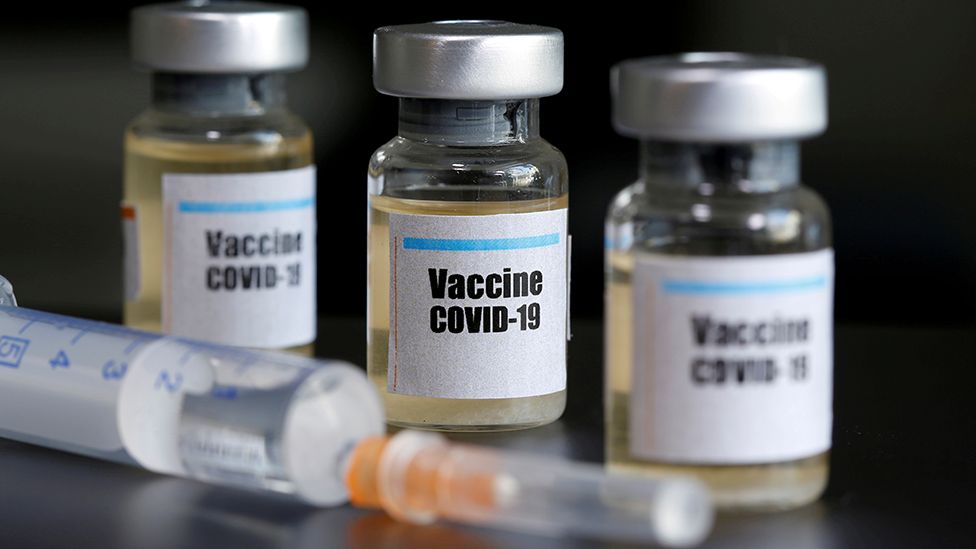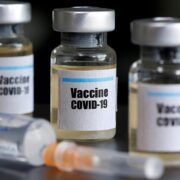
THE United States has announced plans to offer booster shots to Americans starting next month to extend the effectiveness of COVID-19 vaccines amid surges in cases due to the Delta variant.
In a joint statement, the country’s top health officials said that the available data showed protection against COVID-19 decreasing over time following the initial doses of vaccination.
“In association with the dominance of the Delta variant, we are starting to see evidence of reduced protection against mild and moderate disease,” they said Wednesday, August 18.
“Based on our latest assessment, the current protection against severe disease, hospitalization, and death could diminish in the months ahead, especially among those who are at higher risk or were vaccinated during the earlier phases of the vaccination rollout. For that reason, we conclude that a booster shot will be needed to maximize vaccine-induced protection and prolong its durability,” they added.
Among the health experts who signed the statement were Dr. Anthony Fauci, Chief Medical Advisor to President Joe Biden and Director of the National Institute of Allergy and Infectious Diseases (NIAID); Dr. Rochelle Walensky, Director of the Centers for Disease Control and Prevention (CDC); and Dr. Janet Woodcock, Acting Commissioner of the Food and Drug Administration (FDA).
“We are prepared to offer booster shots for all Americans beginning the week of September 20 and starting 8 months after an individual’s second dose,” they said.
Individuals who were fully vaccinated earliest in the vaccination rollout, including many health care providers, nursing home residents, and other seniors, will likely be eligible for a booster.
Efforts to deliver booster shots directly to residents of long-term care facilities will also be launched.
The plan is subject to FDA conducting an independent evaluation and determination of the safety and effectiveness of Pfizer’s and Moderna’s COVID-29 vaccines, as well as the CDC’s Advisory Committee on Immunization Practices (ACIP) issuing booster dose recommendations based on a thorough review of the evidence.v
Health officials noted that booster shots will likely be needed for people who received the single-shot vaccine from Johnson & Johnson, though more data on it is expected in the next few weeks.
“Our top priority remains staying ahead of the virus and protecting the American people from COVID-19 with safe, effective, and long-lasting vaccines especially in the context of a constantly changing virus and epidemiologic landscape. We will continue to follow the science on a daily basis, and we are prepared to modify this plan should new data emerge that requires it,” they said.
For his part, Biden endorsed the health experts’ recommendation for booster shots next month.
“This will boost your immune response. It’s the best way to protect ourselves from new variants that could arise,” he said in a speech at the White House.
“These booster shots are free. You’d be able to get the booster shots at any one of approximately 80,000 vaccination locations nationwide. It will be easy. Just show your vaccination card and you’ll get a booster,” he added.
Biden also addressed the criticism that the U.S. is prioritizing vaccinated Americans when many around the world are still waiting for their first dose.
“I know there’s some world leaders who say America shouldn’t get a third shot until other countries get their first shot. I disagree,” he said.
“We can take care of America and help the world at the same time. In June and July, America administered 50 million shots here in the United States. And we donated 100 million shots to other countries. That means that America has donated more vaccines to other countries than every other country in the world combined,” he added.
Earlier, the World Health Organization (WHO) criticized wealthy nations that support boosters for the general public.
“The reality is today we’re planning to hand out extra life jackets to people who already have life jackets, while we’re leaving other people to drown,” said Dr. Mike Ryan, executive director of the WHO Health Emergencies Program.
Meanwhile, the organization’s top scientist pointed out that there’s no evidence supporting the need for a third dose.
“We believe clearly that the data to date does not indicate that boosters are needed,” Dr. Soumya Swaminathan said in a press briefing. n






